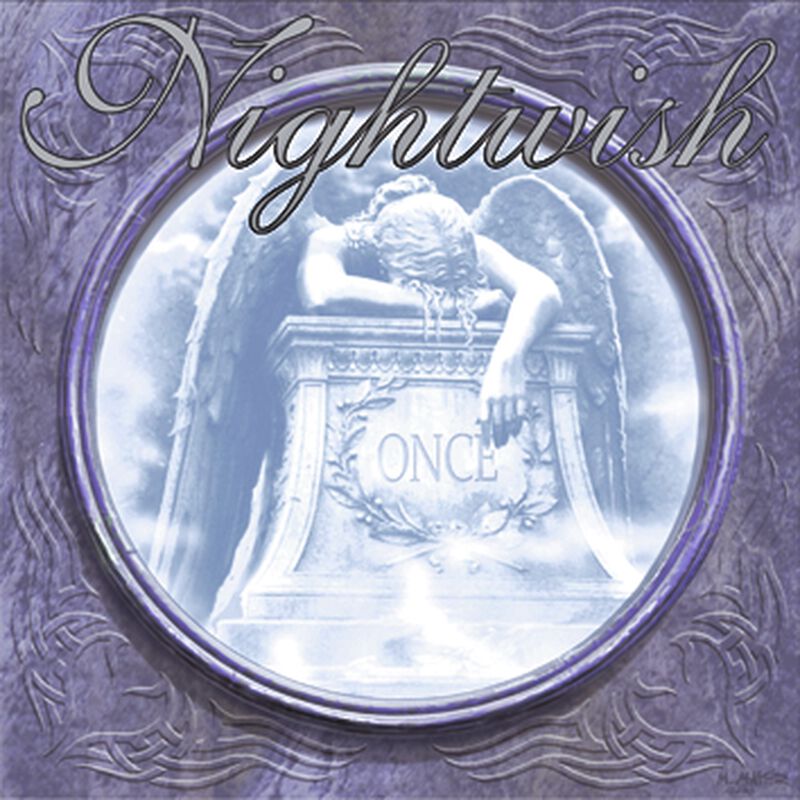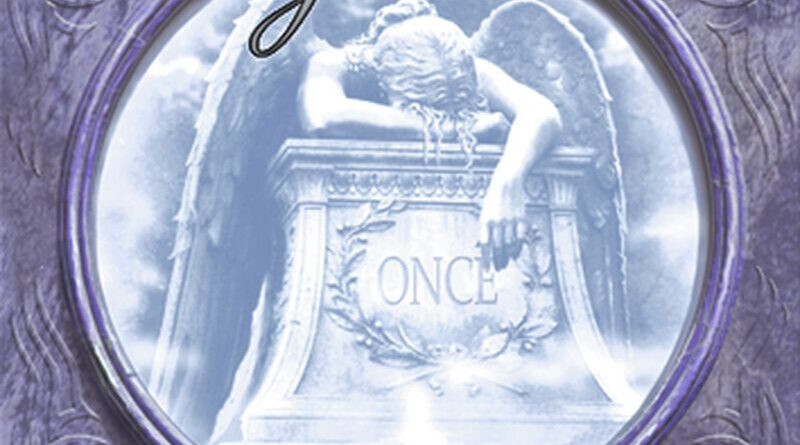HEAVY MUSIC HISTORY: Once – Nightwish
Thrash has Master Of Puppets. Grunge has Nevermind. Symphonic metal has Once. Every genre has a defining moment that goes on to become the yardstick all subsequent efforts are measured by. NIGHTWISH weren’t the first to combine metal with opera and orchestras, but on their fifth record – and magnum opus – they brought a niche scene to the masses. Released 20 years ago in June 2004, Once was when a movement mostly confined to mainland Europe went truly global. But it wasn’t all good news.
At the end of the album’s accompanying world tour, lead singer Tarja Turunen was dismissed from the band, literally moments after the final show. The letter she was given, signed by the other four members, was shared publicly and led to sensationalism in the rock press usually saved for gossip mags. At the time, and in hindsight, the whole ordeal was unbecoming of a band who were typically known for their elegance. This, by contrast, was ugly; the mess it created put NIGHTWISH in the headlines for all the wrong reasons. It only got worse on follow-up Dark Passion Play with Bye Bye Beautiful a distasteful reflection on the whole situation, and Master Passion Greed a similarly targeted song towards Turunen’s husband. Great for those who love spilt tea, but everyone else longed for the band to get back to making their brand of heartfelt metal.
It wasn’t to be Once’s only controversy. One of the album’s two epics, Creek Mary’s Blood, features John Two-Hawks, a musician of supposed Native American ancestry. In the years since, Native American fans of the band have criticised his involvement by claiming the poem he recites is poorly translated, casting doubt over the legitimacy of his identity. Discussions online continue to be divided, but for those who have kept up with the conversation, it has undoubtedly cast a shadow over what is otherwise a beautiful piece of music (the band have not played it live since 2009, seemingly acknowledging the suspicion hanging over it). Its final chorus in particular, when the orchestra plays to the rafters while accompanying Turunen, is an example of NIGHTWISH at their very best.
A lot of great art has, in the time since its release, faced reevaluation. While the drama surrounding Once may mean its success comes with footnotes, the record itself remains the pinnacle of the genre.
Even Dead Gardens, the only song from the album never to have been performed in concert, is a remarkably strong ‘b-side’. Its music, sweeping and confident, contrasts lyrics about writer’s block. Having made it through to the other side, Holopainen’s pen might say “the play is done, the curtain’s down, all the tales are told, all the orchids gone,” but he regained the tools to write a song about it with his trademark sense of awe.
Which is a feeling that runs across the album, never more so than on Ghost Love Score, the ten-minute apex of the band’s career. They have since written longer and arguably more complex songs, but none have captured lightning in a bottle like this. Holopainen described Once as going ‘ten steps beyond’ anything they had ever done before, and on Ghost Love Score, it was the first time he reached his lofty ambition of sounding like Hans Zimmer’s peer. Its swashbuckling breakdown is equal parts triumphant and aggressive, totally at home in what is ultimately a metal song, while also fit for closing night at The Proms. It is deceptively un-catchy: its chorus is driven by a choir while Turunen draws “my fall will be for you” out sorrowfully on top. But it is instantly memorable for its scale and orchestration, something which few would have been familiar with in metal at the time. For many, its closest comparison would have been METALLICA’s S&M compositions.
While unconfirmed, Ghost Love Score’s tale of lost love could reflect the impending loss of Turunen as the relationship between her and band leader Holopainen soured. If so, it places the split at the heart of the band’s legacy, the subject matter of their most acclaimed piece. Ever since, debate has raged on about who the band’s best singer has been, such is the passion of their fanbase that the thought of anyone other than Turunen fronting NIGHTWISH is to this day too much for some.
Once endures for other reasons too. Nemo is still their most identifiable hit, recently featuring in Metal Hammer’s list of 100 songs that changed metal. Wish I Had An Angel, an outlier in the band’s library with its pounding industrial sound, was an overt attempt at breaking America, and it worked. It featured on the soundtrack of the critically panned Alone In The Dark movie, and it is hard to overstate how much appearing on an awful horror film’s album was a rite of passage for popular metal acts in the early 2000s. It might be the clearest sign that whatever they were doing was working.
For the diehards, it is impossible to imagine a greater collection of album tracks. Romanticide is one of the band’s heaviest numbers and features some of the best vocal interplay between Turunen and Marko Hietala, something that defined the Once and Century Child eras. Kuolema tekee taiteilijan (released as a single in Finland and Japan) is an underrated ballad, sung in Finnish, and its delicacy leads into the metallic fragility of Higher Than Hope, a heartbreaking finale about a fan and friend of the band who died before the album dropped.
It wasn’t so apparent on its release, but it’s clear now how much of Once is about endings. The end of love, the end of life, the end of working relationships, the end of this iteration of the band. The invitational intro of “Once, I had a dream, and this is it” is inherently nostalgic, remembering the magic from a previous time. The Angel of Grief on its cover weeps over a grave, pained over losing something, someone, who isn’t coming back. With Turunen’s departure, it was the final page of the band’s first chapter. They weren’t to know at the time there were more ahead. Years later, the band would lose Hietala and drummer Jukka Nevalainen too. Only Holopainen and guitarist Emppu Vuorinen remain from the Once years. Revisiting the record for this article, it is hard not to feel that NIGHTWISH in 2004 and the band in 2024 are entirely separate entities.
Turunen and Once could never be outdone, so it was an inspired decision to replace her with someone whose voice is so different. Anette Olzon couldn’t compete with Turunen’s operatic talents – who in this corner of music could? – but she didn’t have to, she just had to justify a second chapter. That she achieved it after a record like this is remarkable.
Once was a gateway for millions of fans to discover a genre that elicits a unique sort of devotion. There is nothing else in symphonic metal that hits like the album’s opening moments, when Dark Chest Of Wonder swoops in, urgent and bombastic. When it comes to being part of a scene, Once put NIGHTWISH at the head of the table where they remain in 2024. That an album about loss led to new beginnings sounds like something right out of a NIGHTWISH song. When they are operating at the highest level, as they are for all of Once, nothing can stop them.

Once was originally released on June 7th 2004 via Nuclear Blast Records.
Like NIGHTWISH on Facebook.

